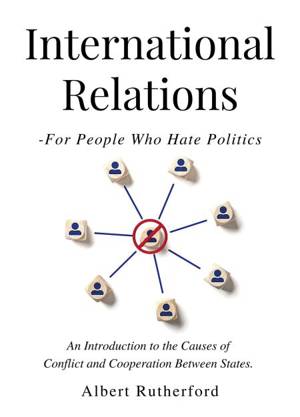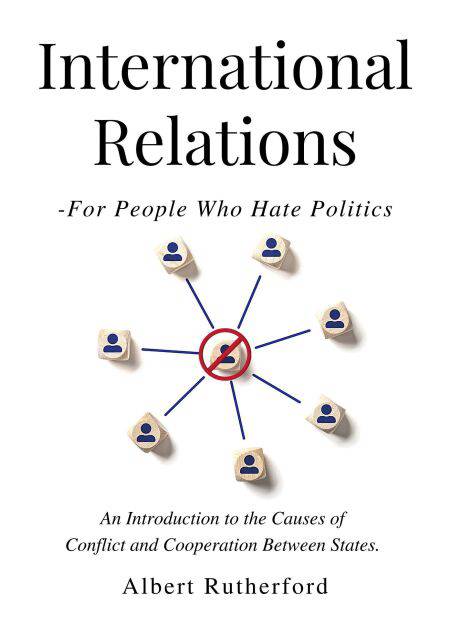
- Afhalen na 1 uur in een winkel met voorraad
- In januari gratis thuislevering in België
- Ruim aanbod met 7 miljoen producten
- Afhalen na 1 uur in een winkel met voorraad
- In januari gratis thuislevering in België
- Ruim aanbod met 7 miljoen producten
International Relations - For People Who Hate Politics E-BOOK
Albert Rutherford, Zoe McKeyOmschrijving
How did the United State rise to power? Why is China's communism functional?
Learn the basics of international relations and get to know the answers.
Some people hesitate to learn about politics because they hate politicians. Others consider politics something deceitful that's better left to other people. However, to live in a world of your liking, you need to elect politicians who share your values. And to do that, you need to understand what happens at the backstage of politics, not only at the forefront of a campaign period.
The world does not need to be complex and confusing.
This book presents the historical and theoretical milestones that have shaped modern global politics – and thus the world. It highlights the biggest turning points in history, and the most influential schools of thought, which impact political decision-making to this day. This essential read provides you with context the news often omit – what ideas influence and impact leaders' decision-making in the background, how do these ideas provide strengths and expose vulnerabilities.
How did globalism "happen?"
How does the international systems work?
Why does your informed contribution matter?
What's your political "belief" – even if you think you don't have one?
Understand and make sense of the world around you.
Albert Rutherford is an internationally best-selling author, and a systems thinking and game theory veteran. His books draw on various sources, from strategic analysis, scientific research, and his life experience. Co-author and revisor, Zoe McKey, studied international relations and policy development in one of the oldest universities in Europe. Bringing her expertise to the table, the authors provide a sweeping account on how political schools of thought make sense of and shape political decision-making.
Have an impact on real issues.
International Relations – For People Who Hate Politics is a multidisciplinary account that draws on history, political science, philosophy, anthropology, and economics, giving the reader a deep peak into the origins of globalization. It is both a great primer and a manual of fresh insights into the internal and international struggles of world leaders, raising awareness about the power dynamics and limitations of countries.
Learn the strengths and drawbacks of various policies.
We, citizens of a country, have the ability not only to design our own life but also to shape the world we live in. Who do we want to become as a nation? Answering this question requires a deeper understanding of our options – politically speaking.
Specificaties
Betrokkenen
- Auteur(s):
- Uitgeverij:
Inhoud
- Taal:
- Engels
Eigenschappen
- Productcode (EAN):
- 9781393490913
- Verschijningsdatum:
- 9/07/2022
- Uitvoering:
- E-book
- Formaat:
- ePub

Alleen bij Standaard Boekhandel
Beoordelingen
We publiceren alleen reviews die voldoen aan de voorwaarden voor reviews. Bekijk onze voorwaarden voor reviews.









